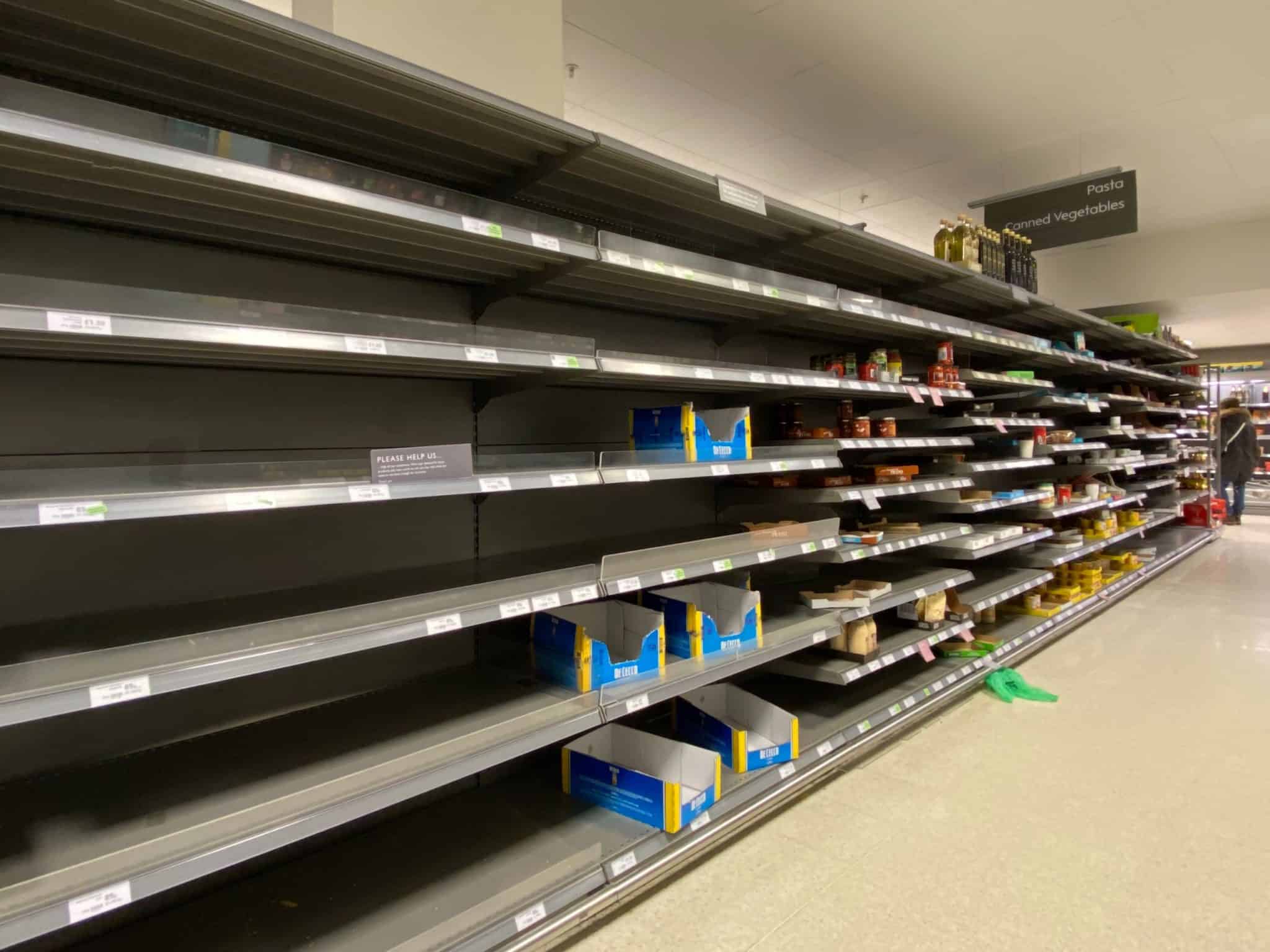
6 Wealth-Building Lessons from Khadijah (RA) Every Muslim Should Know
03 December 2025 8 min read


Ibrahim Khan
Co-founder
4 min read
Last updated on:
Hard times like pandemics or global recessions tend to bring out the best in some people, and the worst in others. A small but harmful minority engage in behaviours that are not only harmful to society, but also clearly go against Islamic teachings.
We highlight what Islam and the sharia has to say on each of these:
There were numerous stories of people panic-buying and clearing out shelves in supermarkets during the pandemic in 2020. The government had to come out and confirm very clearly that food supply chains are robust and it does not expect there to be any shortage of food as a result of coronavirus.
What are the problems here?
Islam speaks emphatically against the kind of behaviour that results in the outcomes listed above:
The Qur’an says:
“and do not throw yourself with your own hands into destruction.” (2:195)
The Prophet SAW said:
“The Muslim is the one from whose tongue and hand the Muslims are safe”. (Bukhari)
“Whoever believes in Allah and the Last Day, let him not harm his neighbor.” (Bukhari)
when asked “what is Islam?” said: “That you surrender your heart to Allah and that the Muslims are safe from your tongue and hand.” (Musnad Ahmad)
Hoarding (when you buy far in excess of what you need) is not an Islamic behaviour as evidenced by the below 3 sayings of the Prophet Muhammad PBUH.
Hoarding is closely related to panic buying but the distinction is that a hoarder is one who buys far in excess of what they need. A hoarder may also be a businessman who hoards in order to drive up prices and then sells his goods for a higher price.
Umar ibn al-Khattab said,
“There is no hoarding in our market, and men who have excess gold in their hands should not buy up one of Allah’s provisions which he has sent to our courtyard and then hoard it up against us.” (Muwatta Malik)
I think the take-home message is pretty clear. Hoarding is emphatically not an Islamic behaviour.
There are a number of reports of shops hiking up prices far beyond normal. We have done a detailed article on the meat industry in particular here, but lay out some general guidance here.
The Prophet said:
“and do not go ahead to meet the caravan (for buying the goods) (but wait) till it reaches the market”. (Muslim)
The background to this hadith is that some people would try to get to incoming caravans before they got to the market in order to buy items for cheaper and/or to hoard them. There is a clear unfairness that makes this behaviour blameworthy.
In our context, when a shopkeeper suddenly starts charging 5x the normal price for essentials such as toilet roll (even though there is no discernible change in its supply or stock) then that is also deeply unfair. This behaviour is to be condemned and not something Muslims should engage in.
I am careful however to note that the Prophet, when asked to intervene to fix prices, refused and said:
“Allah is the one Who fixes prices, Who withholds, gives lavishly and provides, and I hope that when I meet Allah, none of you will have any claim on me for an injustice regarding blood or property.” (Tirmidhi)
The point being, that where, as a direct result of changes in supply or demand, a tradesman changes his prices then the normal position is that its his decision to do that. In time the market will decide if he’s right by buying from him or not.
But in cases such as ours, where there is mass panic, there is a pandemic, and where we are discussing essential food and household items, the situation is slightly different. Particularly so, given the UK laws against profiteering.
Unsurprisingly, the sharia teaches us to avoid all 3 of the above behaviours.
We must of course avoid all such behaviour ourselves, but in these testing times, we must encourage others to also do the same. And where we see people misbehaving egregiously, we should, as much as we can, step in and try to stop that behaviour or, at the least, condemn it.

03 December 2025 8 min read

26 November 2025 6 min read

23 September 2025 4 min read
Leave a Reply